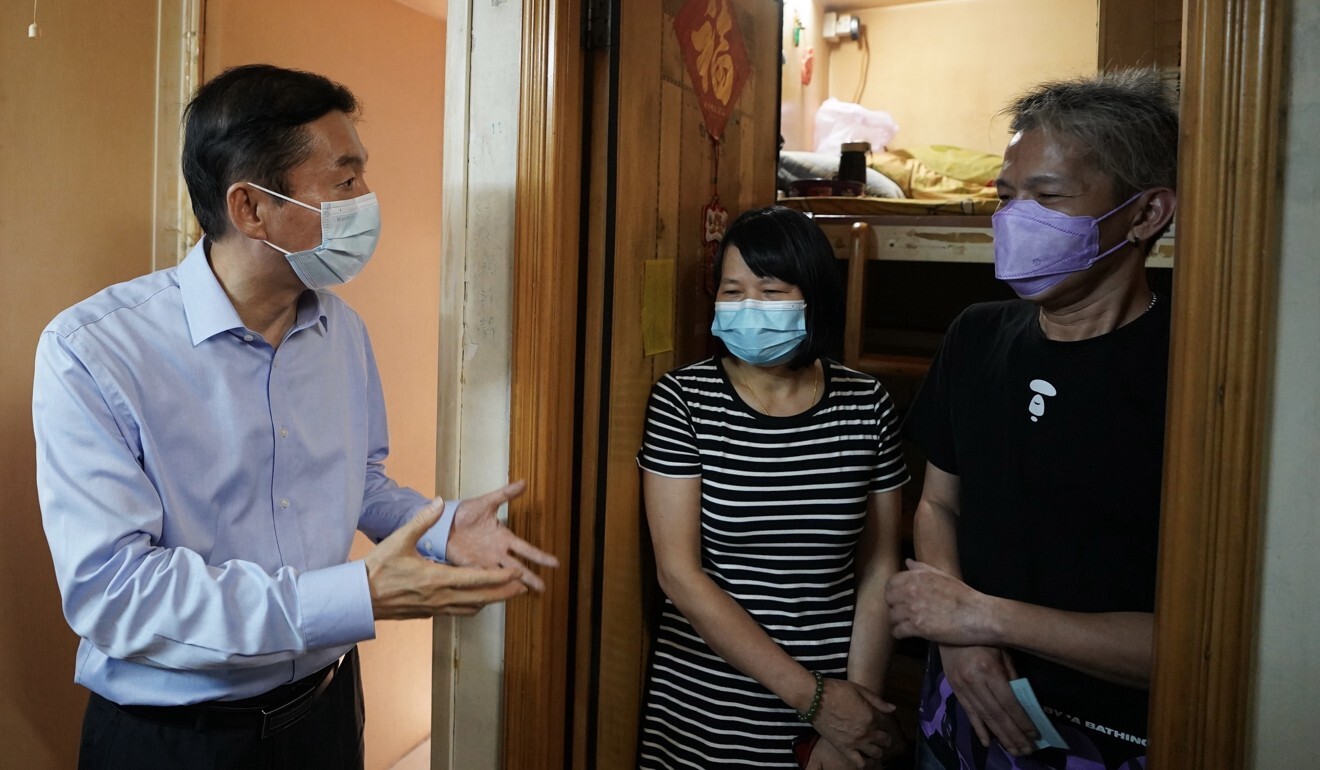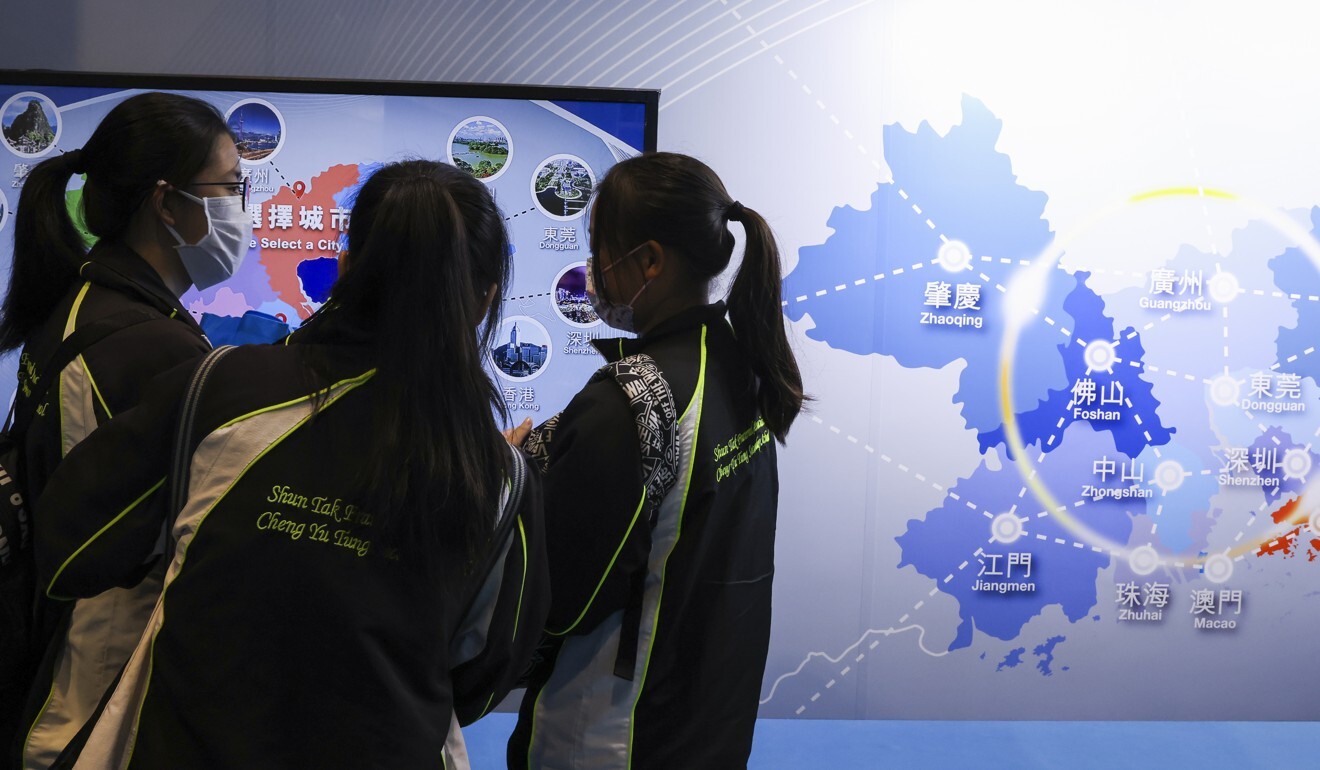
Liaison office No 2 visits Hong Kong students, entrepreneurs at farm in show of support as Beijing unveils Greater Bay Area perks for city’s youth
- Measures revealed on National Day in advisory paper compiled by various departments, including State Council’s Hong Kong and Macau Affairs Office
- Initiatives aim to ‘further perfect’ support structures and convenient measures for young people to take up jobs in bay area
On Friday, Beijing also set out a series of measures for young Hongkongers as part of its bay area project, providing entrepreneurship training and encouraging youth to join support programmes in poor villages.

02:35
China's ambitious plan to develop it own ‘Greater Bay Area’
The liaison office later stated on its website that Chen cited Xi, saying the Chinese leader had “issued repeated reminders to help the youth of Hong Kong build stages and ladders”.
Chen told students, entrepreneurs and employees he met on the farm: “I can see from all of you that you did not ‘lie flat’ amid the pandemic, following the black violence by Hong Kong’s youth. Instead, you rose courageously and represent the perseverance demonstrated by Hong Kong’s youth.”
He was referring to the anti-government protests in 2019. To “lie flat” is a popular mainland Chinese term referring to those who prefer to be lazy in the face of competition.
“I will come back in half a year’s time to listen to the progress of your project again,” Chen told his audience.
Luo launched his week-long charm offensive on Thursday, visiting at least five places, including meeting young tech entrepreneurs at Cyberport in Pok Fu Lam, elderly residents seeking free medical help in Sham Shui Po and fishermen working on their boats in Aberdeen, as well as shopkeepers and “cage home” tenants in Mong Kok.
Lawmakers and social workers have compared Luo’s move with that of local officials, who have been accused of failing to reach out to the grass roots, although at least five ministers have made such efforts.
New People’s Party chairwoman Regina Ip Lau Suk-yee, a cabinet adviser to the city’s leader, wrote on her Facebook page earlier on Friday: “In comparison, Hong Kong officials … seem to be unmoved by various livelihood problems, so I just want to ask: ‘Officials, have you woken up yet?’”

On Friday, the new measures were revealed in an advisory paper compiled across agencies, including the State Council’s Hong Kong and Macau Affairs Office.
The paper said the initiatives aimed to “further perfect” support structures and convenient measures for young people to take up jobs in the bay area, the central government’s ambitious project to integrate Hong Kong, Macau, Shenzhen and eight other cities in Guangdong province into an economic powerhouse.
Assistance will come in four key areas, including allowing the city’s youth to join the “three support, one help” scheme, centred on sending university graduates into villages to tackle poverty. The programme offers educational, farming and medical support to help the poor.
The second key area is to encourage entrepreneurship and innovation by providing a “one-stop” service, tax breaks and venue support.

Other support measures include raising employability through skills training, providing training subsidies, and perfecting employment services such as job matching for the unemployed.
Last month, the central government announced it would support at least 120 Hong Kong and Macau entrepreneurial projects, offering nearly 60,000 job, exchange and internship opportunities for young people from the two cities in the next five years.
The raft of measures, unveiled by officials at a webinar organised by the All-China Youth Federation in Hong Kong, also grants university students in the city access to national scholarships and allows them to enter a series of high-profile technology and innovation contests held in mainland China.
Separately, Guangdong authorities also announced last month the creation of a new organisation, dedicated hotline and information handbook to support young people from Hong Kong and Macau who are based in the nine mainland cities that are part of the bay area project.

